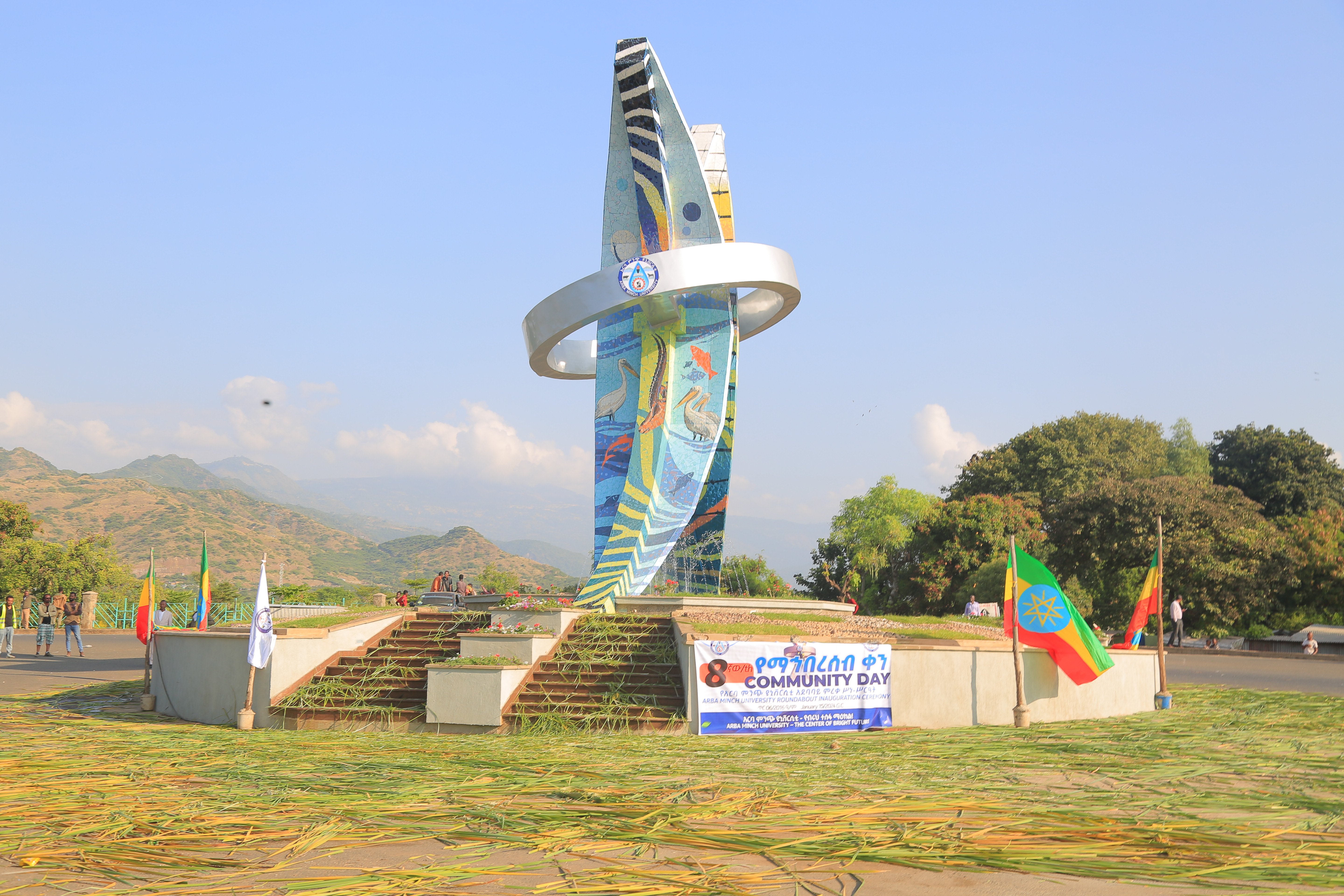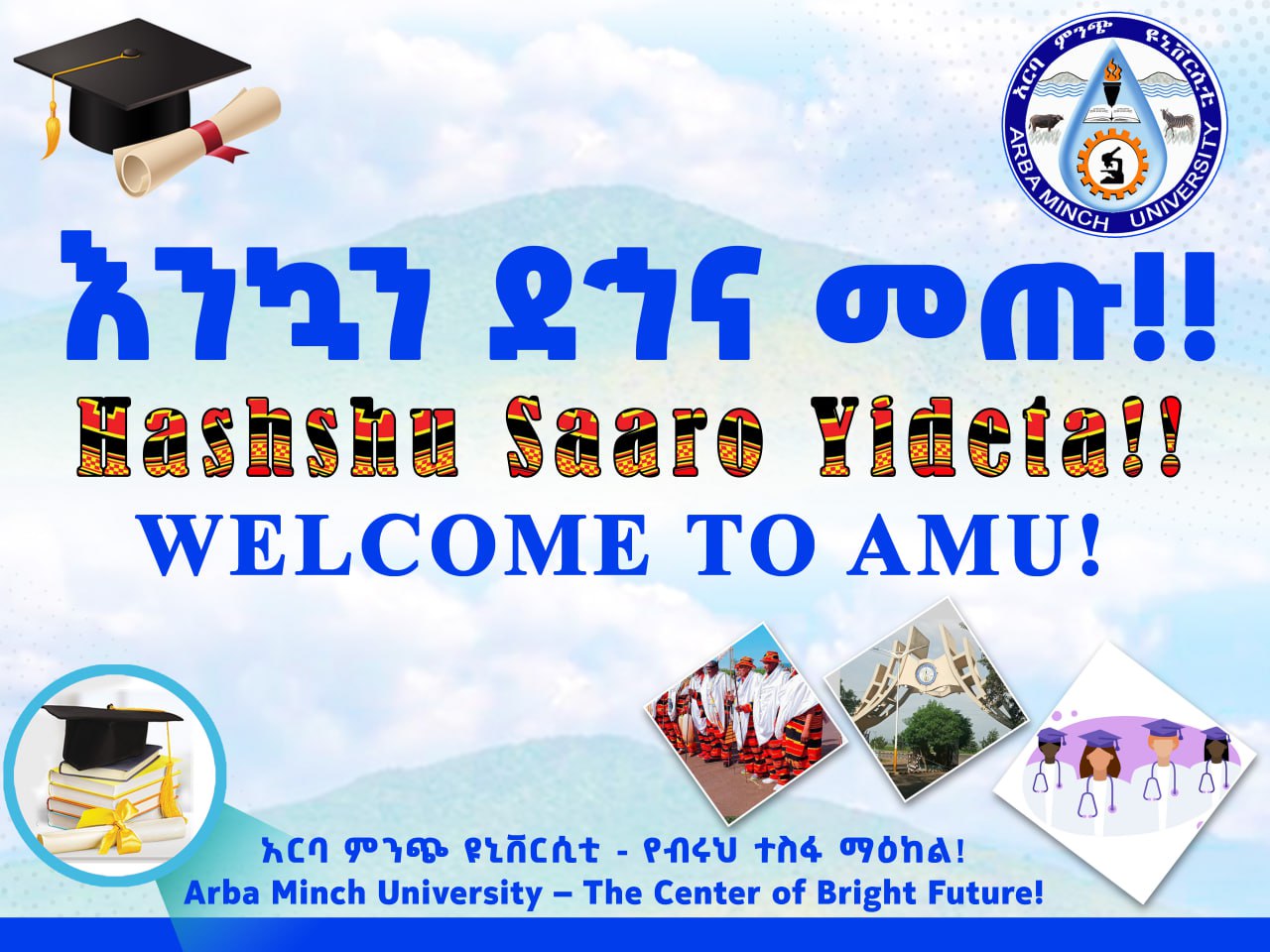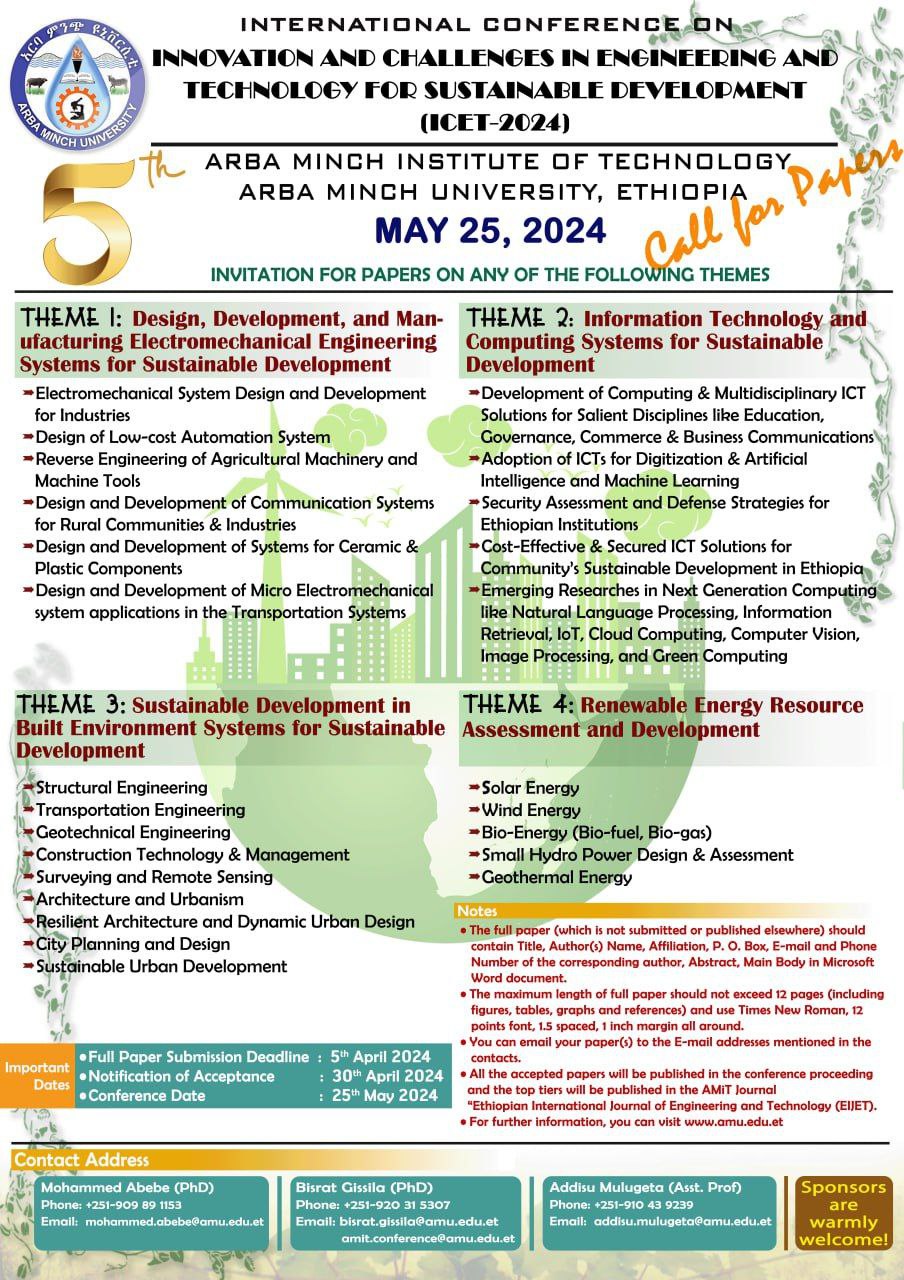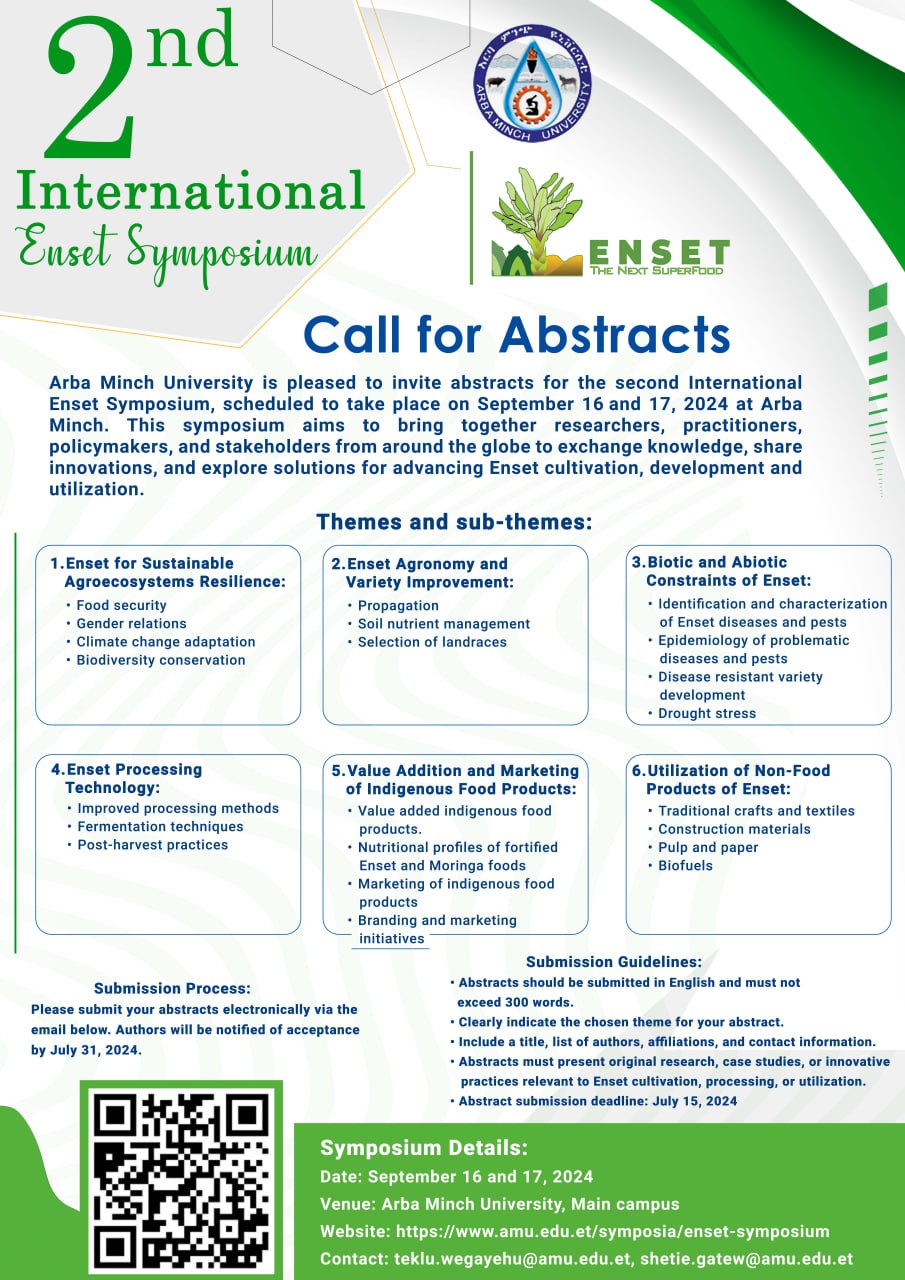Arba Minch University (AMU) signed a Memorandum of Understanding (MoU) with Armauer Hansen Research Institute (AHRI) to collaborate in research activities, joint publications, training, and competitive grants.Click here to see more photos
Dr. Tesfaye Habtemariam, AMU’s executive research director, presenting AMU’s latest structure explained that the university has well equipped laboratories, and research centers. He also said that all types of the climate around the university are just living laboratories to carry out different researches.
AMU president, Dr. Damtew Darza, said that the collaborative agreement with AHRI will help much more in improving the knowledge regarding health issues. Project proposals of common interest can be developed, grants can be sought and even we can work together for technology transfer, get our laboratories equipped and academic exchange boosted, he noted. AMU and AHRI’s infrastructure, research potential and expertise jointly will pave the way to hit the target successfully, he remarked.
Prof. Afework Kassu, director general of AHRI, said that AHRI’s mission is to improve medical care, health and wellbeing of the public by generating and delivering scientific research, developing new tools and methods through biomedical, clinical and translational research, and to serve as a hub for technology transfer and capacity building in medical research and training. Prof. Afework also added that AMU is a great potential area and has all climates at its vicinity which is very essential for our collaborative research work. The two institutions will work hard to improve our community’s health and living condition making sustainable progress aligned with scientific discoveries, he hoped.
Dr Aklilu Alemu, KMD director, giving a lowdown on Armauer Hansen Research Institute (AHRI) said that it was founded in 1970 through the initiative of the Norwegian and Swedish Save the Children organizations and Federal Ministry of Health, Ethiopia. The Institute got its name from the Norwegian physician, Gerhard Henrik Armauer Hansen, who first described the leprosy bacillus (Mycobacterium leprae). It was established as a biomedical research institute and joined the Ministry of Health in 2004.
Postgraduate (MSc and some PhD) theses are funded from the core budget of the institute whereas most of other researches are funded by competitive grants, Dr Aklilu explained. AHRI research activities cover basic areas of immunology and molecular biology, epidemiological and translational research; AHRI has published more than 900 research papers in peer reviewed journals so far, he explained. The institute has also produced several theses and dissertations from Ethiopian and international scholars in biomedical research and has a network of national and international collaborators in peer reviewed grant projects, clinical trial partnerships and capacity building activities in training of MSc and PhD students.
Dr. Fitsum Girma, lead researcher at Malaria Neglected Tropical Diseases/MNTD/ directorate, Dr. Adane Mihret, director of Communicable and Non Communicable Diseases, Dr. Getachew Addis, lead researcher of Traditional and Modern Medicine Research at AHRI and Dr. Shallo Daba, GCE Coordinator, had different presentations giving specific details of AHRI’s functions.
At the end, Prof. Afework Kassu and Dr. Damtew Darza led the discussion and responded to queries raised from the participants. The two officials also have inked the MoU agreement on behalf of the two institutions.
Arba Minch University
The Center of Bright Future!
For more Information Follow us on:-
Website - https://www.amu.edu.et/
Telegram - https://t.me/arbaminch_university
Facebook - https://www.facebook.com/ArbaMinchUniversityCAD/
YouTube - https://www.youtube.com/channel/UCOO_nclhMo8M3r74OyPBlVA
Communication Affairs Directorate
